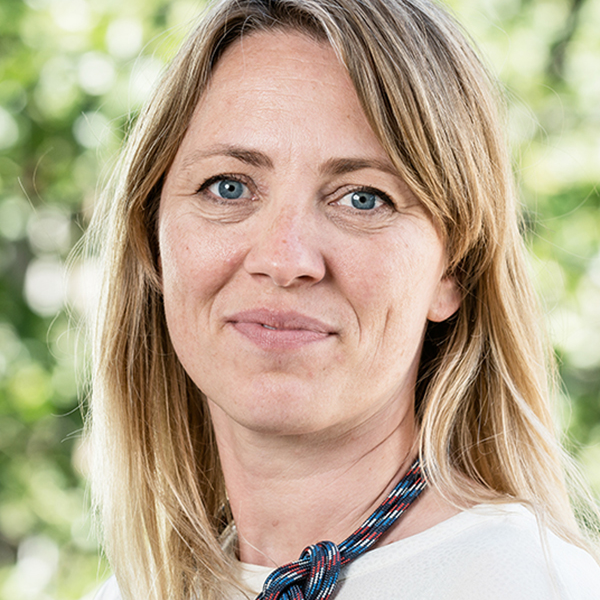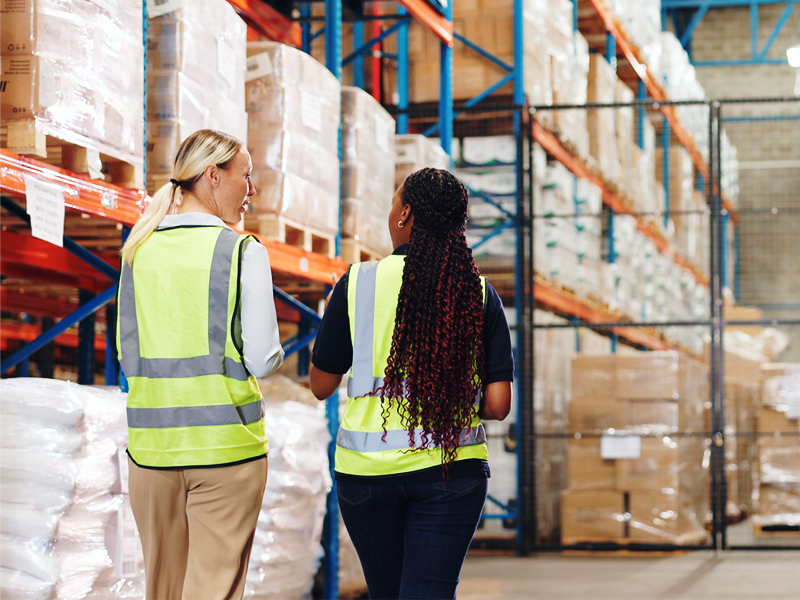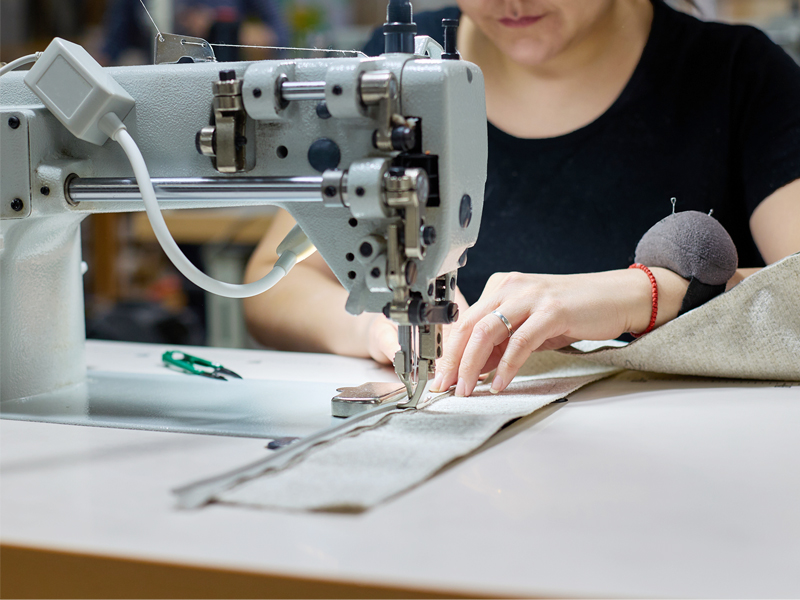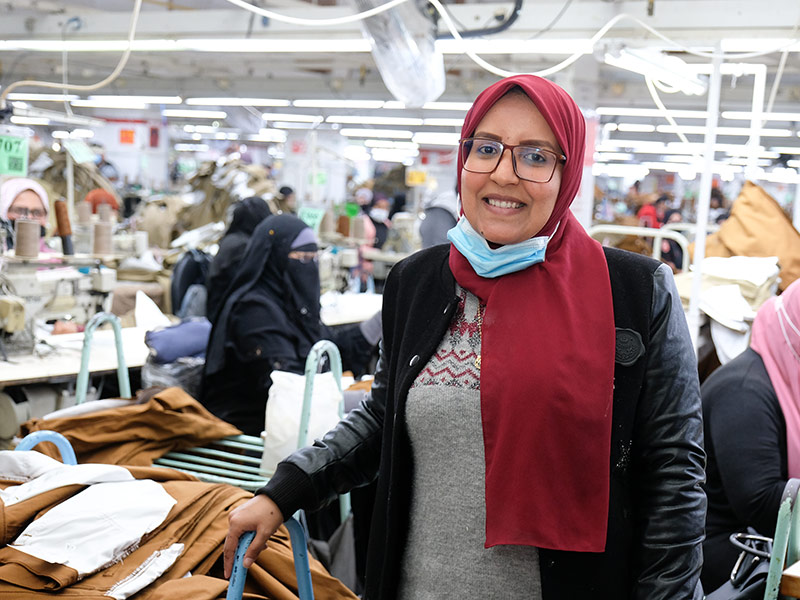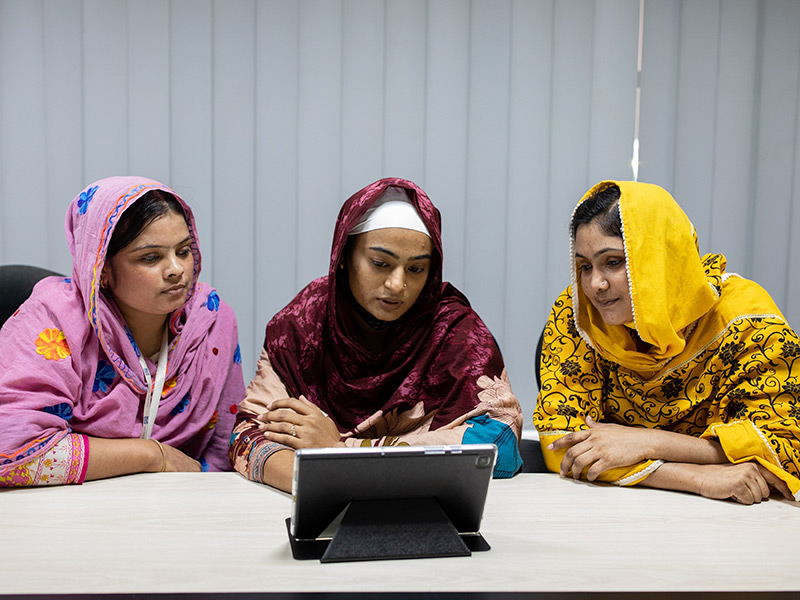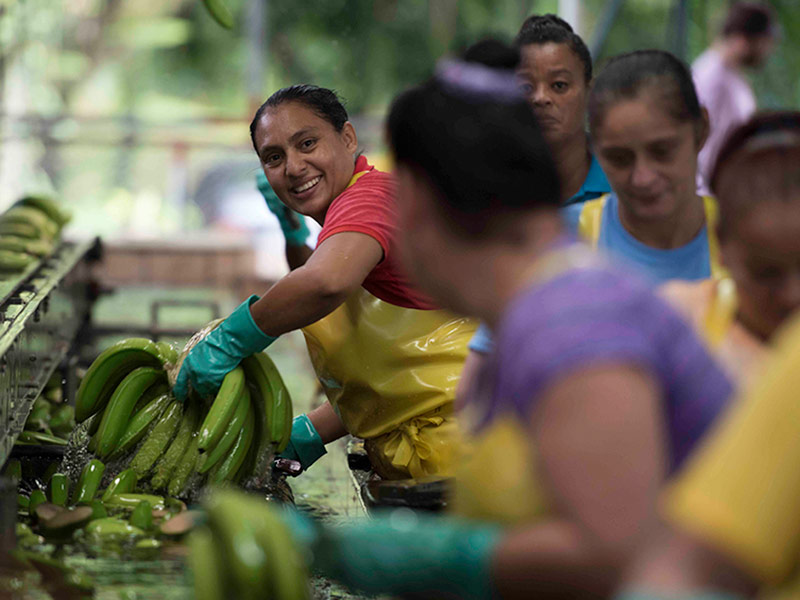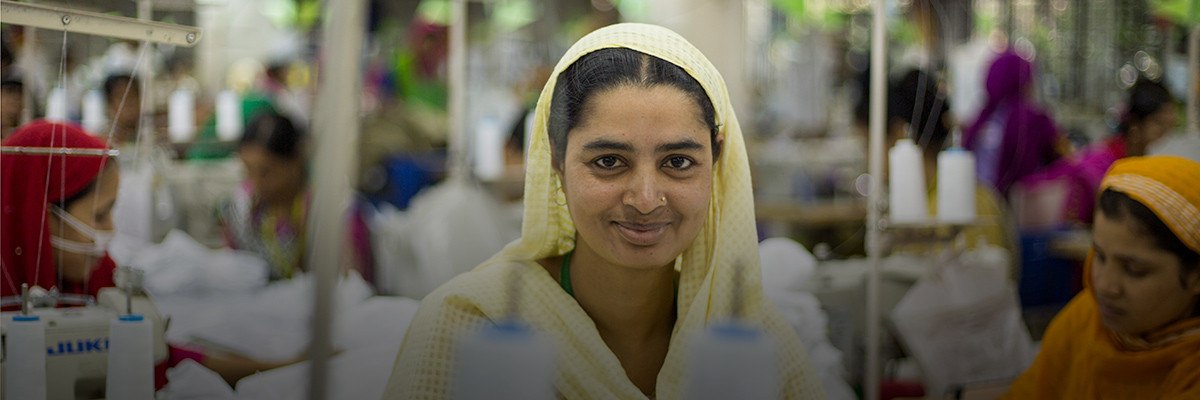
Over the past several months, we have seen unmistakable evidence that women around the world continue to face mistreatment. On this International Women’s Day, let us commit to use these stories to strengthen our resolve to ensure that women—and men—everywhere are empowered to create workplaces, communities, and societies in which women can thrive and be treated with respect.
Last week in Bangladesh, we visited sites of HERproject, a BSR collaborative initiative to empower low-income women working in global supply chains. In meeting with partners and speaking with women working in the country’s apparel sector, we saw firsthand the promise of business action to promote women’s health, financial literacy, and autonomy.
HERproject was launched just over 10 years ago, in recognition of the fact that there was a massive opportunity to not only make sure that the vast numbers of women working in global supply chains have basic legal protections, but also that they can become agents of change for themselves and their peers. We are proud that in the past decade, HERproject, working in collaboration with dozens of local partners inside the supply chains of more than 60 global apparel and agricultural companies in more than 700 workplaces, has empowered more than 800,000 women.
Our travels through the endless sprawl of Dhaka allowed us to spend time with the women who are making HERproject a success. In one apparel factory we visited, we saw the training of 40 peer educators in a factory that employs 5,000—training that will enable them to help their colleagues access health care. Tapoty Roy, a line supervisor and peer educator who has worked in the garment sector for the last 15 years, proudly told us how she has become a valued resource for the 60 women she oversees. "They come to me and ask for support with work or their home life, and they know I will help.” The information transmitted through the program enables women to reduce absences, keep newborns healthy, and build confidence and pride that strengthens both their personal and professional lives.
And the program’s benefits are not just for women. Sweet Begum, another factory worker who invited us to her house, introduced us to her son-in-law, who explained that he is using what he learned from Sweet Begum to train the men in the factory where he works.
These stories and many others demonstrate HERproject’s premise: Women in global supply chains represent a powerful force for change that can help ensure that global trade delivers human progress. Through coordinated action in global supply chains, we can stand with these women as they improve their lives and the lives of those around them.
In a sector that employs millions of women, often in difficult working conditions and societies that struggle to ensure public health, there is much left to do. Systemic barriers to women’s financial autonomy, access to health care, and gender-based violence are all too often a reality. Moreover, women working in global supply chains are subject to additional challenges, as exemplified by the statistics that indicate that Bangladeshi garment workers face far higher levels of sexual harassment and violence than the reported national average in Bangladesh.
The example of the women we met in Bangladesh the past few days is inspiring. One peer educator in Gazipur explained matter-of-factly that she makes sure that all 60 of the women in her line in the knitwear factory implement everything she’s learned from the HERhealth training. Thanks to her and the thousands of other peer educators HERproject has worked with, hundreds of thousands of women have seen the possibility that better information, opportunities, rights, and conditions can bring to their lives.
But they will only fully succeed once their leadership is supported by their colleagues, family, and supervisors—as well as the companies for which they produce.
We firmly believe that if all players across global value chains—buyers, suppliers, customers, women, and men—#PressForProgress, we can achieve a future where employment and empowerment go hand-in-hand for women workers, and where an empowered female workforce is widely recognized as a driver for business success.
On this particular International Women’s Day 2018, the need for action has never been clearer. As we have seen in stark terms through the #MeToo and #TimesUp movements, there is a need to do far more to ensure that women are treated with respect and fairness, both within and outside the workplace.
This means more companies need to stand up and say, “We too will champion the rights, needs, and equal opportunities of women—not only in our headquarters, but across our supply chains.” In this context, we look forward to collaborating with you this year to empower even more women around the globe.
Topics
Collaborative Initiatives
Let’s talk about how BSR can help you to transform your business and achieve your sustainability goals.

